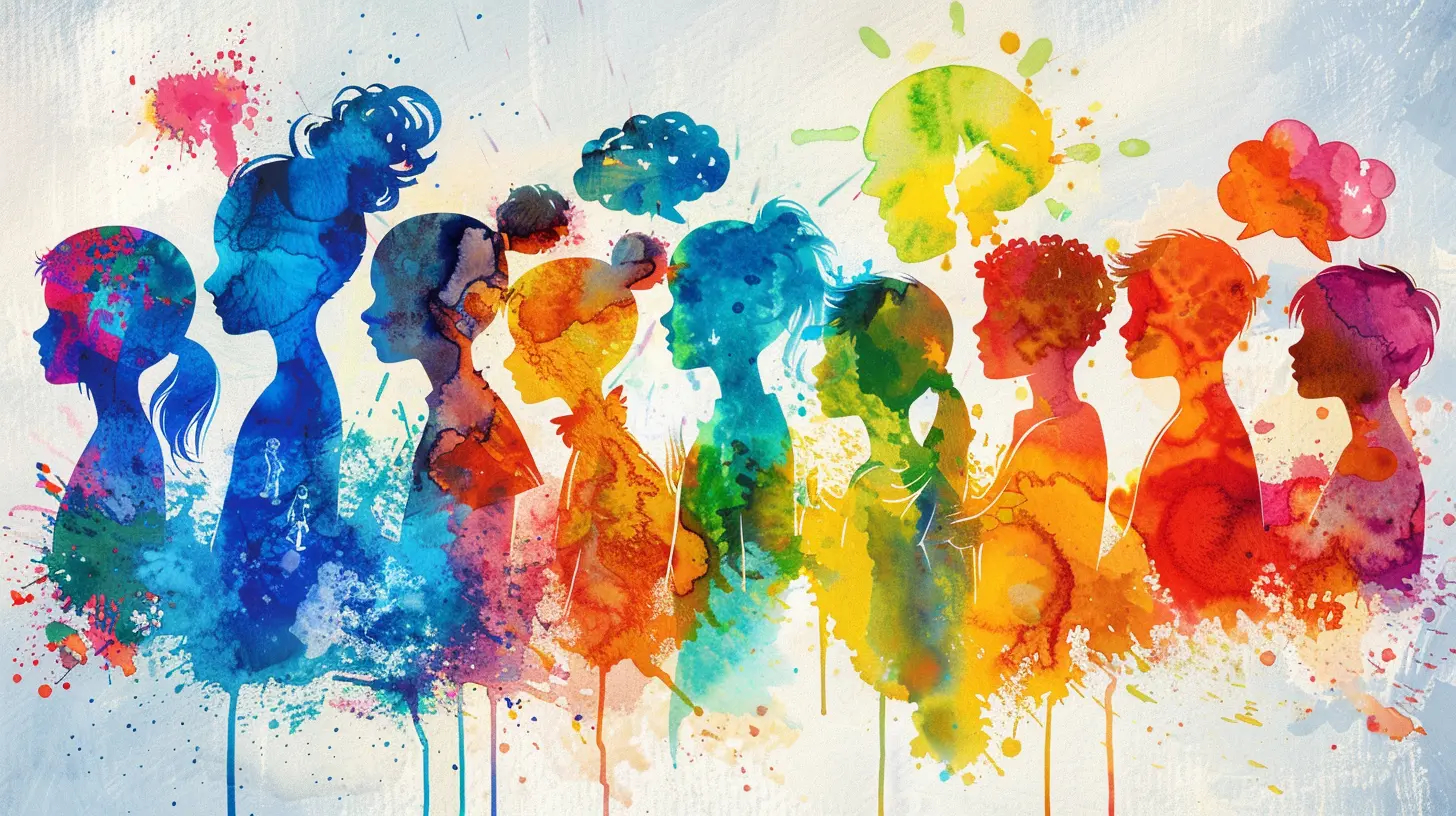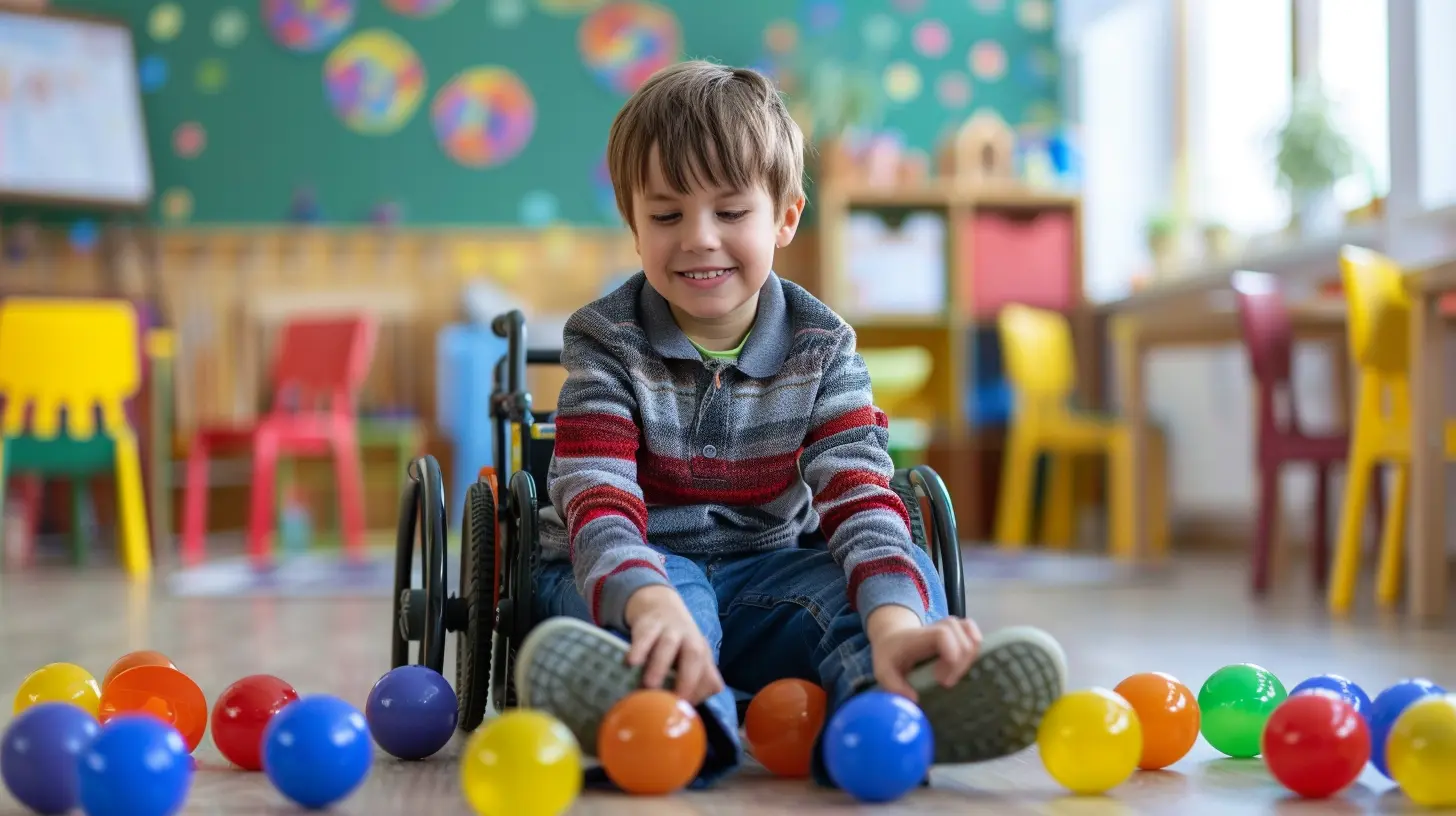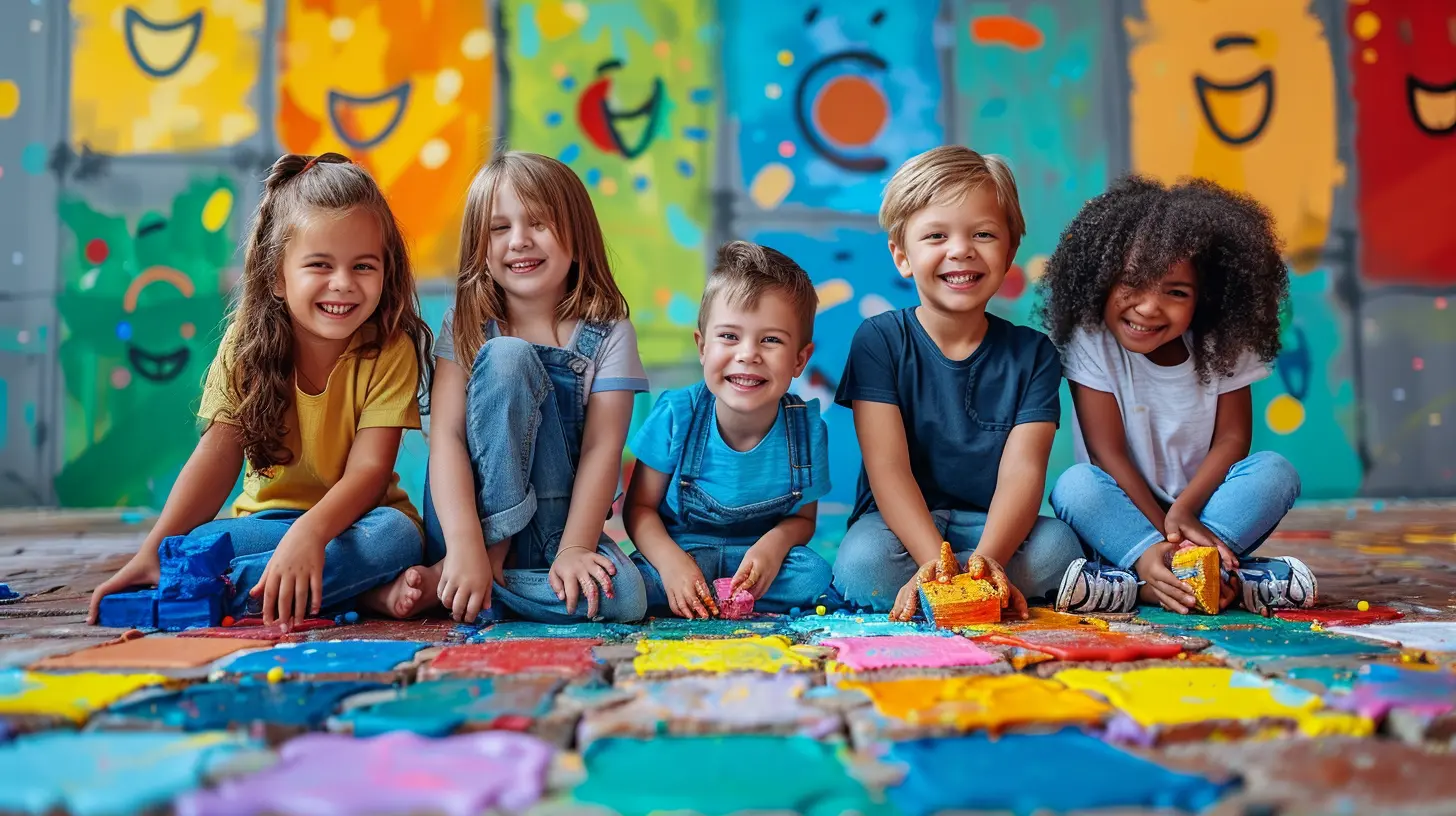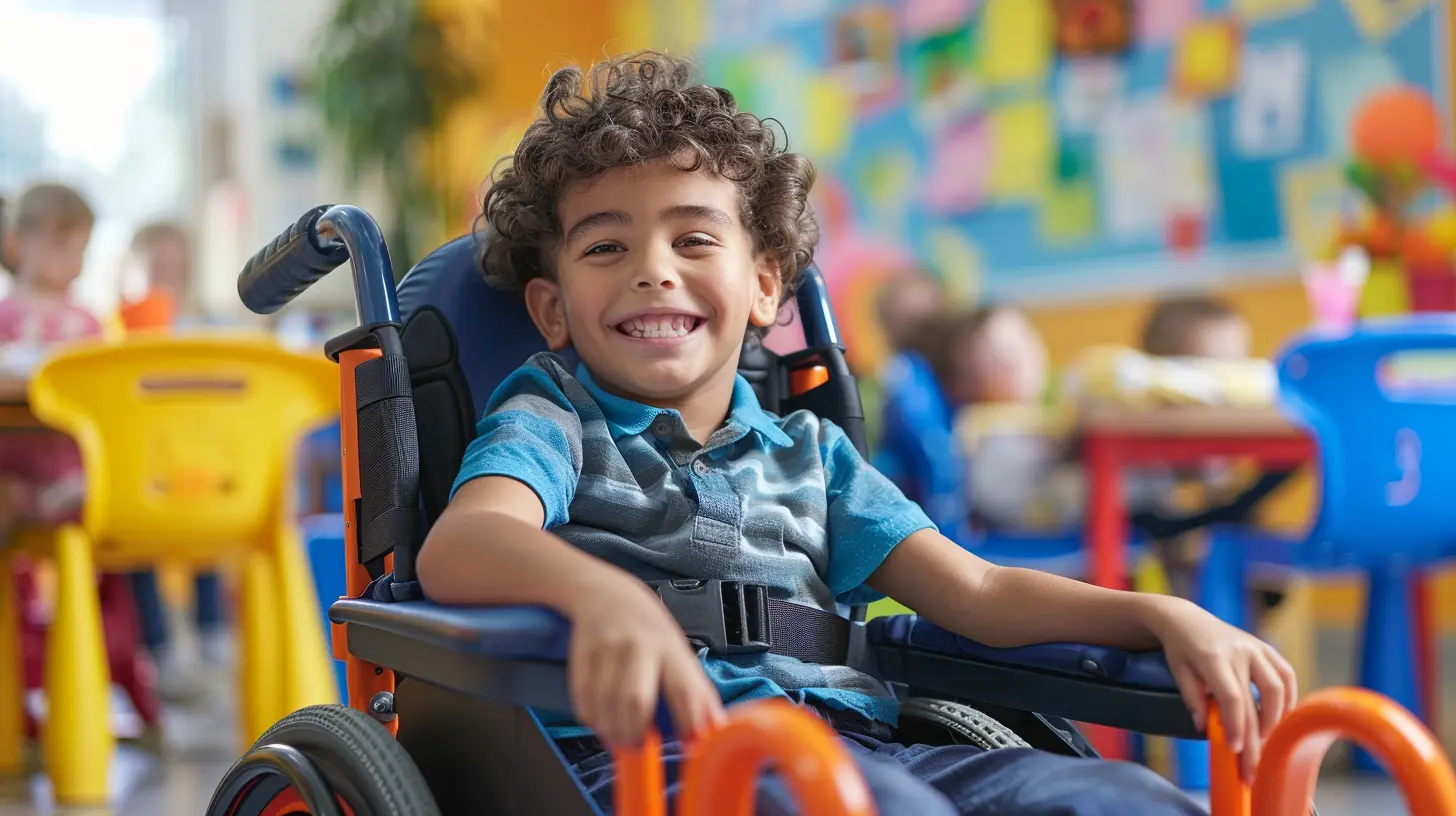Building Social Skills in Children with Learning Disabilities
25 November 2025
As parents, caregivers, and teachers, we all want the best for children, especially when it comes to their development and growth. But what happens when your child faces challenges in areas where others seem to thrive, like social skills? For children with learning disabilities, building social skills can be a bit more complicated, but it's far from impossible. In fact, with the right strategies, patience, and support, we can help these children not only navigate social situations but also excel in them.
In this article, we'll dive deep into understanding learning disabilities, how they can affect social skills, and what we can do to help children overcome these hurdles. Whether you're a parent, teacher, or caregiver, this guide will arm you with practical tips and insights to help children with learning disabilities build the social skills they need to succeed in life.

What Are Learning Disabilities?
Before we get into the nitty-gritty of social skills, let's first clarify what we mean by "learning disabilities."A learning disability is a neurological condition that affects how individuals process information. This can make basic skills like reading, writing, math, and even communication more difficult to grasp. Common types of learning disabilities include:
- Dyslexia: Difficulty with reading.
- Dyscalculia: Difficulty with math.
- Dysgraphia: Difficulty with writing.
- Auditory Processing Disorder: Difficulty in understanding spoken language.
- Nonverbal Learning Disorder: Difficulty in interpreting nonverbal cues, such as body language and facial expressions.
These disabilities don't reflect a child's intelligence or potential, but they do present unique challenges—especially when it comes to social interactions.
How Learning Disabilities Affect Social Skills
So, how do learning disabilities impact social skills? Well, think about social interactions as a dance. Everyone has to know the steps, the rhythm, and the timing. For many children, these skills come naturally, but for children with learning disabilities, it can feel like they're dancing to a completely different tune.Some common social challenges children with learning disabilities might face include:
- Difficulty understanding nonverbal cues: Facial expressions, gestures, and tone of voice can be hard to interpret.
- Struggling with verbal communication: Finding the right words or following a conversation can be challenging.
- Poor impulse control: Some children may have difficulty waiting their turn or might interrupt others.
- Trouble forming friendships: Social misunderstandings can lead to isolation or difficulty maintaining friendships.
If you're reading this and thinking, "That sounds a lot like my child," you're not alone. Many parents and caregivers face the same concerns. The good news? There are ways to help.

Why Social Skills Matter
Before we dive into strategies, let’s talk about why social skills are so important in the first place. Sure, being able to make friends is great, but the benefits of strong social skills go way beyond the playground.1. Improved Emotional Well-Being: Children who are socially competent tend to have higher self-esteem and are better equipped to handle life's challenges.
2. Better Academic Performance: Social skills often translate into classroom success. Children who can communicate effectively with peers and teachers are more likely to participate in class and feel confident in their abilities.
3. Future Success: Social skills are life skills. As children grow into adults, they’ll need these abilities in almost every aspect of life—from succeeding in the workplace to building healthy relationships.
Now that we understand the "why," let’s look at the "how."

Practical Strategies for Building Social Skills
1. Model Appropriate Social Behavior
Children with learning disabilities often look to adults for cues on how to behave in social situations. This means that as parents, teachers, or caregivers, we need to set the example.Whenever possible, model the behavior you want to see. This doesn’t have to be complicated! A friendly smile, making eye contact during conversations, and using polite language can go a long way in teaching children the basics of social interaction.
You can also break down social rules into bite-sized chunks. For instance, if you're teaching your child how to greet someone, show them how to make eye contact, smile, and say, "Hello." Practice this until it becomes second nature.
2. Use Role-Playing Exercises
Role-playing is an excellent way to practice social scenarios in a safe and controlled environment. You can role-play anything from how to introduce oneself to how to handle disagreements.For example, set up a pretend playdate with your child. Practice greeting the other person, sharing toys, and taking turns. This type of play allows children to rehearse social situations without the pressure of real-time interactions.
Remember, practice makes perfect! The more your child rehearses these interactions, the more comfortable they’ll become in real-life situations.
3. Break Tasks into Small Steps
For children with learning disabilities, overwhelming them with too much information at once can backfire. Instead, break social interactions into smaller, manageable steps.For instance, if you're teaching your child how to start a conversation, you could break it down like this:
1. Make eye contact.
2. Smile.
3. Say, "Hi, how are you?"
4. Listen to their response.
5. Respond with a related question or comment.
By focusing on one step at a time, you help your child build confidence and reduce anxiety around social interactions.
4. Teach Emotional Regulation
Emotional regulation is crucial for successful social interactions. Children with learning disabilities may struggle to manage their emotions, leading to outbursts, frustration, or withdrawal. Teaching emotional regulation techniques can help.Try using a "feelings chart" that helps your child identify how they’re feeling. Once they can identify their emotions, teach them coping strategies like deep breathing or taking a break when they feel overwhelmed.
It might also help to explain that it’s okay to have strong emotions, but there are appropriate ways to express them. For example, instead of yelling when upset, encourage your child to use their words or ask for help.
5. Provide Positive Reinforcement
When your child successfully navigates a social situation, no matter how small, be sure to acknowledge it! Positive reinforcement can be a powerful motivator for children with learning disabilities.For example, if your child shares a toy or takes turns without needing a reminder, praise them right away. You could say, "I love how you shared your toy with your friend. That was really kind!" This type of reinforcement not only boosts their confidence but also encourages them to repeat the behavior in the future.
6. Encourage Group Activities
Group activities such as sports, drama clubs, or music groups can provide excellent opportunities for children to practice social skills in a fun and structured environment. These activities promote teamwork, listening, and communication—key components of social interaction.If your child is hesitant to join a group, start small. Perhaps begin with a playdate or a small group where they feel comfortable. Over time, you can introduce more structured group settings.
7. Use Visual Supports
Many children with learning disabilities are visual learners, so using visual supports can make abstract social concepts more concrete. You can create social stories that outline specific situations (like playing with a friend or attending a birthday party) and explain the appropriate behavior in each scenario.Additionally, use visual cues like picture cards or charts to remind your child of social rules. For example, you could create a "conversation chart" that shows steps for starting and ending a conversation.
8. Foster a Growth Mindset
Finally, it's essential to encourage a growth mindset in children with learning disabilities. A growth mindset is the belief that abilities and intelligence can develop through effort and learning.When children believe they can improve, they’re more likely to embrace challenges, persist through difficulties, and see failure as a learning opportunity. Remind your child that social skills are just that—skills. And like any skill, they can get better with practice.
9. Seek Professional Help When Needed
Sometimes, the challenges may feel too big to tackle on your own, and that's okay. Seeking help from professionals—like speech therapists, occupational therapists, or psychologists—can offer additional support. These experts can provide individualized strategies and interventions tailored to your child's unique needs.
Conclusion: Patience and Persistence Are Key
Building social skills in children with learning disabilities may take time, but with patience, persistence, and the right strategies, it’s entirely possible. Remember, even small steps forward are victories. Celebrate those wins, no matter how minor they may seem!Your child’s journey to developing social skills is like running a marathon, not a sprint. It takes time, but with consistent practice, encouragement, and the right tools, they will get there. And as they grow, not only will their social skills improve, but so too will their confidence, self-esteem, and happiness.
all images in this post were generated using AI tools
Category:
Learning DisabilitiesAuthor:

Janet Conrad
Discussion
rate this article
1 comments
Galina Kim
Building social skills is like crafting friendships with LEGO bricks—every connection adds color and strength! Let’s help our little builders create amazing social masterpieces!
November 29, 2025 at 4:30 AM

Janet Conrad
Absolutely! Just like LEGO bricks, each interaction helps children construct strong and vibrant friendships. Let's support their journey in building lasting social connections!


